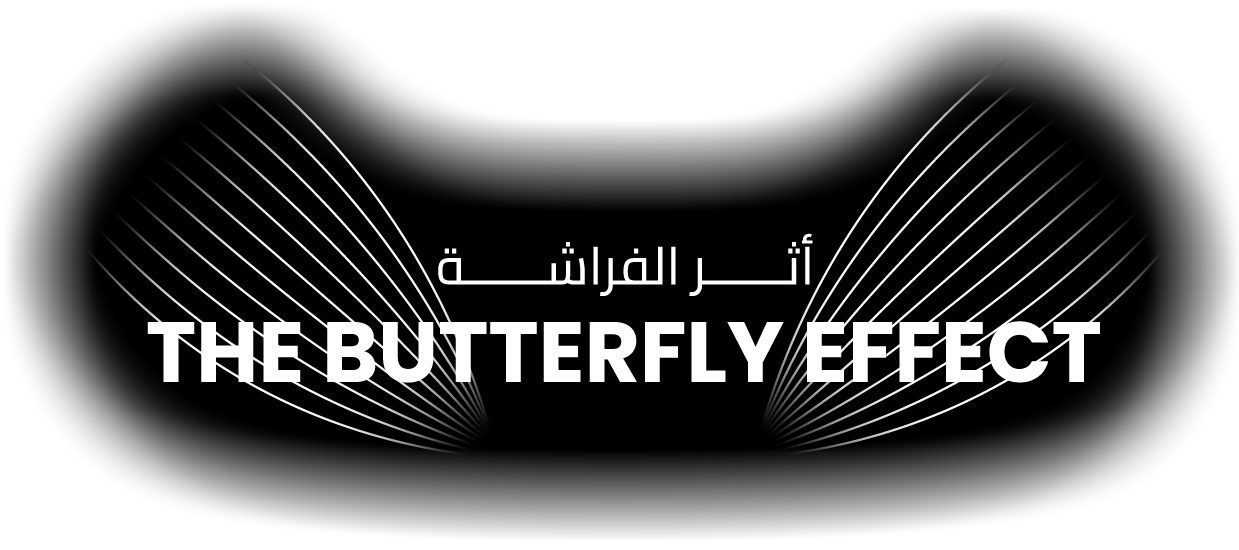



Every choice sets change in motion, Every small decision here and now can create magnified effects, Tracing unseen possibilities across the world.
New realities emerge, When imagination is triggered and reverberates through geographies.
Now is your time to explore the edge, embrace untrodden paths and let things unfold. Like the delicate beat of a butterfly’s wing, Let the echoes weave back into your world,
What transformations will you witness?

The Edge of Government showcases government innovations from across the world. It is an interactive experience that challenges visitors to think in innovative and often counter-intuitive ways about how to solve the most pressing challenges of our time. It also offers visitors the chance to have a dialogue with the innovators behind each exhibit.
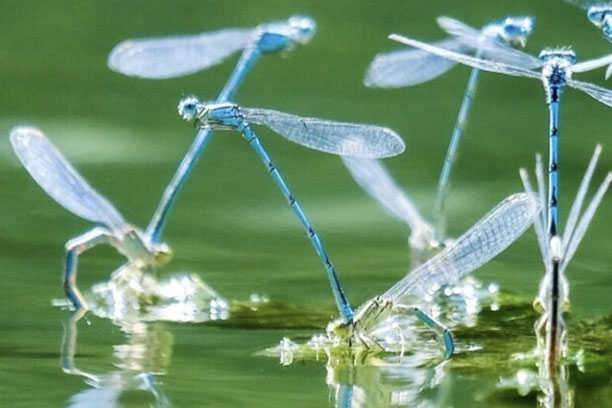

From food security to misinformation: policymakers are facing increasingly complex, interconnected challenges in conditions of high uncertainty. And yet, the tools available to them often rely on silos and linear thinking.
Inspired by the extraordinary vision of a dragonfly’s eye—thousands of lenses working together to create a seamless 360-degree view—Dragonfly Thinking, a Canberra startup, leverages generative AI to help policymakers uncover hidden perspectives, break down complexity, and anticipate cascading risks. Research by political scientist and psychologist Philip Tetlock shows that people with “dragonfly eyes” forecast more accurately than single-focus experts, forming holistic insights from diverse perspectives.
The Australian government is testing the approach on a number of cases related to strategy planning, including a National Resilience program where the Institute for Integrated Economic Research – Australia (IIER-A) is focusing on strengthening economic and supply chain resilience as well as cybersecurity.
Where experts may narrow their focus, dragonfly thinking encourages a broader approach, helping policymakers combine multiple viewpoints to make clearer, more informed decisions, and gain greater foresight.
How else can we use technology to broaden our thinking and challenge our assumptions?
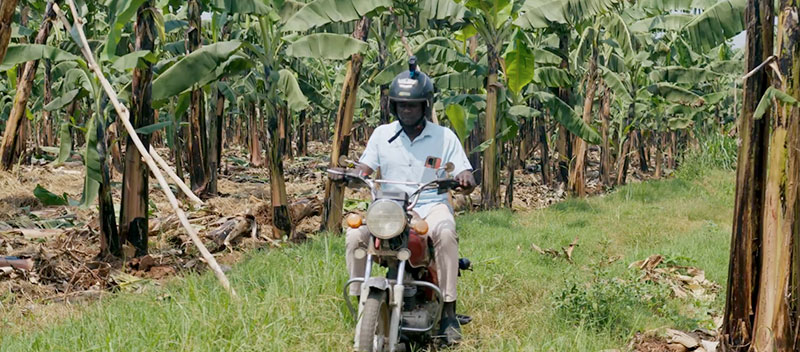



In spite of the abundance of satellite data, providing granular information to farmers -such as when to plant crops or anticipate disease outbreaks- remains challenging, especially in remote regions. Ground data collection is slow, costly, and inefficient.
Developed in conjunction with NASA, Helmets Labeling Crops revolutionizes agricultural monitoring by equipping citizens—motorcycle taxi drivers, students, and community members—with GoPro cameras mounted on their helmets. This approach has been implemented in 7 countries and adopted by several government agencies to improve agricultural planning and policymaking. In Kenya, over 59 government agricultural officers have been trained to integrate this data into national planning, while in Uganda and Zambia, research institutions and government agencies are using these insights to optimize agricultural monitoring and forecasting.
By reducing data collection costs and time by up to 90%, it has generated over 4.4 million images and 16,000 georeferenced data points, improving crop mapping accuracy to 76.5%. By leveraging local knowledge and creating open-access datasets that fuels local tech innovation, the solution supports 10 million smallholder farmers and strengthens food security in climate-vulnerable regions.
What possibilities can we unlock when citizens become key contributors to global solutions?



Cities face rapidly changing dynamics—fluctuating mobility patterns, economic shifts, and fast moving job markets. Traditional planning methods, based on rigid zoning laws, struggle to adapt, leaving real estate underutilized, where economic and social opportunities are lost and urban vibrancy is diminished.
To address this, Daegu Metropolitan City and the National ICT Promotion Agency (NIPA) under the Ministry of Science and ICT, is experimenting with Dark Matter Labs, a civic focused nonprofit, a radically different approach to urban licensing that removes bureaucratic barriers, enabling demand-driven space use and adaptable rules that evolve with urban needs.
The pilot focuses on revitalizing vacant historic buildings in Daegu’s old inner city by streamlining complex permitting processes that have left spaces unused for years. By integrating real-time IoT data, an open digital architecture, and peer-to-peer verification, the system supports a decentralized, community-driven governance model, repurposing spaces for pop-up businesses, workshops, and cultural events.
First tested in South Korea, the approach is now being emulated in the United Kingdom.
Though still in development, early data shows the system reduces operational costs, accelerates permissions, and activates underutilized spaces, while addressing crime and illegal dumping. These spaces can transform into revenue-generating hubs, where anyone can launch pop-up markets, micro-gardens, yoga classes, and community events, making the city more adaptable, inclusive, and sustainable.
How many more opportunities can cities unlock by reducing burdens for their citizens?






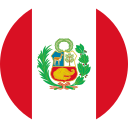
What if the key to understanding global economies and consumption patterns lies in an everyday appliance: the refrigerator?
While other investment funds rely exclusively on quantitative analytics, the UK fund Trinetra uses the Fast and Collaborative Ethnography (FACE) method to analyze refrigerators across 15 markets, including India, China, and Indonesia. This immersive approach embeds researchers in daily life to reveal why people consume—not just what they consume—uncovering social values, aspirations, and trends before they surface in market reports, providing actionable insights in just 7-10 days.
Ethnographic analysis of fridge contents has directly shaped Trinetra’s investments. In India, a shift from homemade paneer to store-bought cheese signals efficiency and upward mobility, leading to investments in ready-to-cook FMCG brands. In Indonesia, working mothers rely on single-serving coconut milk and premade spice mixes to balance career and family, prompting investments in Indonesian convenience-focused dairy products, which led to 18% revenue growth.
In China, returning migrant workers to rural areas bring urban food trends like yogurt, specialty sauces, and vitamins, signaling an urban influence on traditional diets. As consumer preferences shifted toward healthier, globally inspired cuisine, Trinetra strategically divested from fast-food investments and focused on dairy and plant-based foods, with some companies experiencing 15% year-over-year growth.
What other insights could we get by going beyond quantitative data to guide policy and investments?


Protecting biodiversity isn’t just about discovery—it’s about ethical access and equitable collaboration. As the demand for genetic resources grows, local communities must not only contribute to scientific advancements but also benefit from them. This is becoming increasingly paramount as AI is accelerating biotechnology, enabling the creation of entirely new compounds beyond those found in nature.
Cameroon, home to one of the world’s richest ecosystems, remains underutilized, with only 1,000 species studied and fewer than 20 patented, mostly by foreign institutions. Recognizing its genetic wealth, Cameroon ratified the UN Nagoya Protocol on Access and Benefit-Sharing (ABS) in 2016 that ensures fair and legal access to genetic resources and became the only nation to establish a legal protocol ensuring local community engagement.
This progressive framework enabled Basecamp Research, a biotechnology company, to partner with Cameroon's government and local organizations to pioneer Africa’s first ABS agreements for Digital Sequence Information (DSI). This model allows industries to access DSI from genetic resources like DNA sequences of plants, animals, and microbes while ensuring communities benefit financially and through scientific collaboration.
As part of the agreement, four communities are involved in biodiversity sampling in their areas, receiving royalties when AI-driven protein design uses their sequenced compounds for applications in the life science industry such as pharmaceuticals. Beyond royalties, communities earn fees for each sample collected, make collective decisions on fund allocation, and gain scientific training. Local members are also employed as ecological and geographical guides, using indigenous knowledge to assist scientists, providing alternative livelihoods.
The model has expanded globally, with royalties shared across 37 communities in 13 countries, supporting projects from enzyme design for plastic biodegradation to sustainable industrial innovations.
What if protecting biodiversity wasn’t just about conservation, but about ensuring that those who safeguard it also share in its value?


In a world increasingly facing disruptions, the need for governments to understand system-wide dynamics in the economy and anticipate broader repercussions of local events is ever greater. The Digital Twin of Food Systems, a first of its kind, is transforming how governments and organizations address food security. While still in its early stages, this pioneering tool is already demonstrating its potential to reshape decision-making.
By leveraging satellite imagery, crop models, and infrastructure data, the tool maps food movement in the United States, identifying vulnerabilities to major commodity disruptions such as extreme weather events like droughts and heat waves. Policymakers can now prevent cascading shocks through food systems, ensuring sustainability at individual and community level. Its potential has drawn interest from humanitarian organizations and over 10 government agencies, including the U.S. government, to evaluate its use for conflict and stability analysis, as well as NASA Harvest for real-time agricultural monitoring, and the Extension Foundation for science communication to translate food system insights into action.
A global version is in development, encompassing 76 major commodities across maritime, rail, and road networks. It will allow near-real-time assessments of disruptions caused by climate change, conflicts, or labor shortages, enabling decision-makers to model and mitigate cascading impacts.
What new capabilities can we unleash once we are able to see entire systems?

Palau, a small Pacific island nation, relies on tourism as its main source of income, but this lifeline threatens its fragile ecosystem. Visitors have damaged coral reefs, littered oceans and poached protected species. With limited resources and a small population, Palau faced the challenge of managing tourism's environmental toll.
Their solution was simple—what if tourists regulated their own behavior? This inspired the Palau Pledge, the world’s first immigration policy for environmental stewardship. Every visitor must sign a pledge, stamped in their passport, committing to responsible tourism that protects the environment and respects local culture. The pledge promotes engagement with indigenous practices, honoring traditions, and preserving Palau’s identity while ensuring tourism’s benefits don’t compromise its ecosystem.
To date, over a million pledges have been signed, and the initiative has achieved tangible results, including a 50% reduction in single-use plastics. Palau's model of high-value, low impact tourism has inspired countries like New Zealand and Hawaii to adopt similar initiatives.
What might we achieve when nations empower visitors to protect the places they seek to explore?

Times of crisis are often times of unexpected innovations. When severe flooding hit the Savio River, the director of the concert management platform Rockin'1000 had an intuition: Local governments were facing a familiar coordination problem to concert venues; which is, how to match volunteers to a specific location. In the midst of the emergency, local governments lacked the time, tools and capacity to handle thousands of volunteer offers.
Within two days, the platform was repurposed and launched as "Volontari SOS". The solution was adopted by 13 municipalities, helping engage and manage over 50,000 volunteers, with more than 20,000 signing up for over 2,000 shifts, assisting in tasks ranging from debris removal to food deliveries.
Beyond its immediate impact, the platform’s scalability and flexibility have drawn interest from private sector companies exploring workforce integration. With a large database of registered users, it remains ready for future emergencies, offering a replicable and adaptable model for other regions and countries.
What other resources remain untapped in our communities? How can governments activate them?
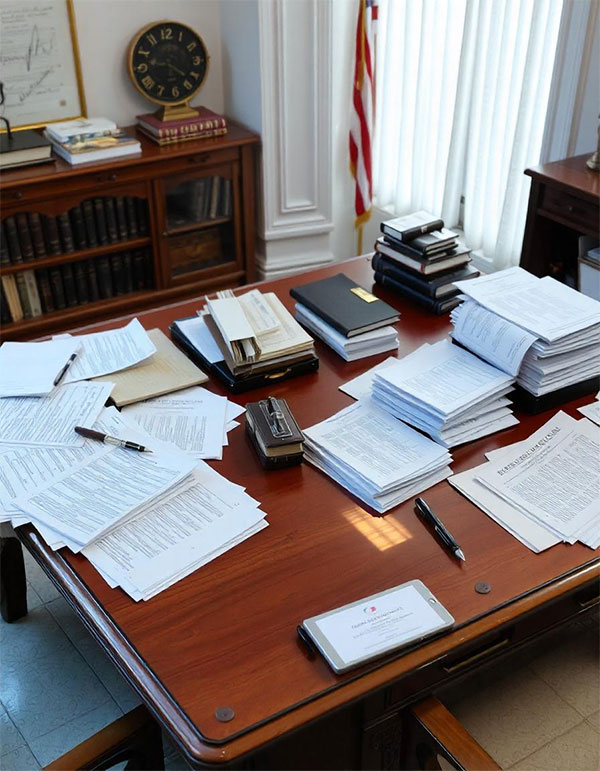

The most vulnerable individuals often struggle to navigate a maze of professionals, institutions, and regulations. In the Netherlands, just 5% of families account for 50% of social care resources due to highly complex needs. We often hear “not allowed” or “can’t be done,” yet more flexibility often exists than expected, and unconventional solutions can be both more effective and cost-saving.
To help those who are at risk of falling through the cracks, the Institute for Public Values developed the 'Breakthrough Method'. This approach enables municipal professionals to bypass bureaucratic hurdles, create customized support plans, and justify exceptions that are both cost-effective and impactful. Over time, these “exceptions” turn into the new standard, reshaping how social care is delivered.
The method shifts from a policy-first to an implementation-first approach, using a digital platform to map cases, pinpoint necessary breakthroughs, identify obstacles, and highlight relevant legal exceptions. It also calculates the financial return of each solution, empowering social workers to justify decisions with confidence, including to financial departments.
Implemented by over 100 municipalities, the method has resulted in average cost reductions of 20% per household within its first year of implementation. Most of this consists of costs avoided by preventing threatening escalations in the short term. 81% of citizens receiving services report that their quality of life is higher after a "breakthrough". A Deloitte study estimates that scaling it to 15,000 households could save over €533 million.
This scalable blueprint empowers government to enhance service delivery, reduce long-term costs, and put citizens at the center of social policy. In 2025, the Institute will develop the Breakthrough Tool using AI, enabling households to access it directly without relying on professionals.
What if bureaucracy could work for people, not against them?

What if the key to ensuring clean water wasn’t found in advanced technology but in nature itself? Traditional water testing happens in intervals, leaving dangerous gaps in detection. But nature has its own solution. The Department of Water Protection Research Team at Adam Mickiewicz University in Poland discovered that clams instinctively detect pollution at the exact thresholds set by legal water safety standards, a discovery only made after observing their behavior.
This led to the development of a clam-based biomonitoring system in Poland that provides continuous, real-time protection for water intakes, treatment plants, and ecosystems. Requiring minimal maintenance, these bivalves act as living sensors, closing their shells when detecting contaminants. Their movements are tracked, triggering an automatic alarm when pollution is detected. Remarkably, they never all sleep at once—some are always monitoring, ensuring round-the-clock surveillance.
Ongoing research is now testing the sensitivity of mussels to emerging contaminants such as pharmaceuticals and their metabolites.
Currently, over 9 million people in Poland rely on water safeguarded by this system, benefiting from its precision and reliability and is already in use across Russia, and the USA. By harnessing nature's intelligence, it offers policymakers a low-cost, maintenance-free, and highly effective approach to water safety, shaping a future where water quality control is proactive, efficient, and guided by nature itself.
What new possibilities emerge when we let nature lead the way?

These innovations have carefully been selected by the Mohammed Bin Rashid Centre for Government Innovation to inspire governments from around the world.

The Observatory of Public Sector Innovation has worked with the Mohammed Bin Rashid Centre for Government Innovation to conduct a global review of the ways in which governments are transforming their operations and improving the lives of their people through innovation. This process has included extensive research into innovations from OECD member countries and non-members alike, as well as an open call to send in projects. The Edge of Government then brings the most exciting and relevant innovations together into an inspiring, annual showcase.

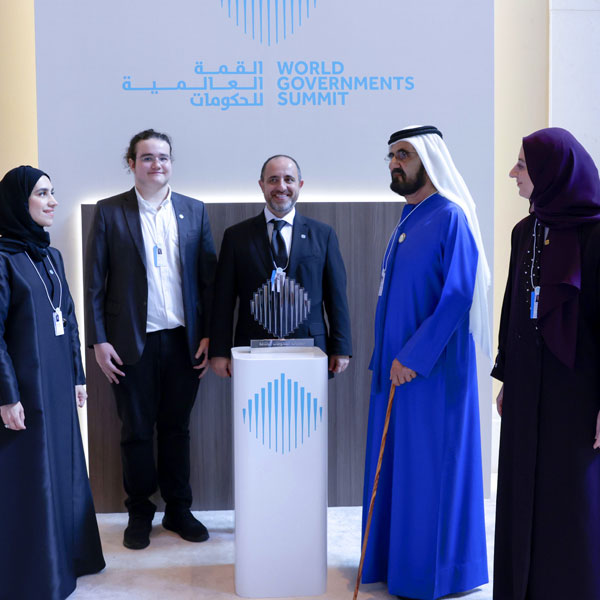
Each year the Edge of Government Award is announced at the World Government Summit. The award aims to identify and acknowledge outstanding examples of government innovation from across the globe. It also helps to reinforce the United Arab Emirates’ leading role as a global hub for innovation, especially in the government sector.
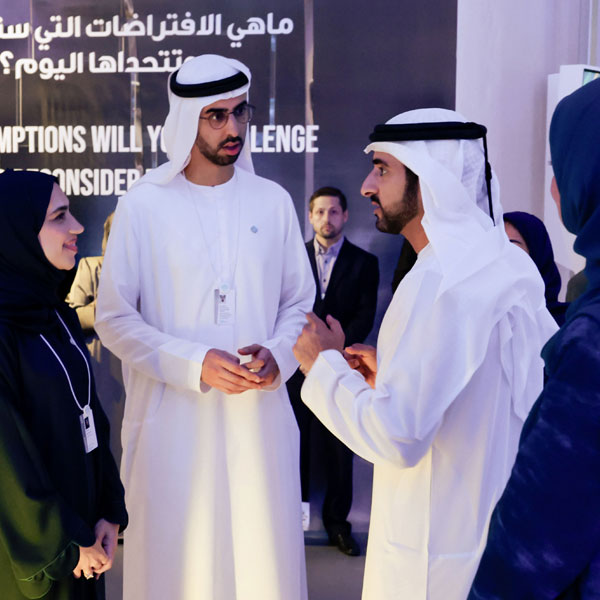
The Mohammed Bin Rashid Centre for Government Innovation was established to stimulate and enrich the culture of innovation within the government sector through the development of an integrated innovation framework. The goal is for innovation to become one of the key pillars of the UAE government in line with the vision of H.H. Sheikh Mohammed Bin Rashid Al Maktoum, UAE Vice President, Prime Minister and Ruler of Dubai, which aims to develop government operations and enhance the UAE’s competitiveness, making the UAE one of the most innovative governments around the world.
The Edge of Government Award will be given away at the World Government Summit in Dubai. It will recognise government innovations from around the world according to specific evaluation criteria: novelty, replicability, and impact. The winner of the Award will be chosen from the exhibits that make up the Edge of Government experience at the Summit.
Evaluation process
Applications for the award will be accepted through an online submission process and will be open to local and federal governments from around the world. The filtering process will be done by the Mohammed Bin Rashid Centre for Government Innovation and a leading research partner. The final evaluation will be done by a distinguished judging panel comprising members of the Mohammed Bin Rashid Centre for Government Innovation International Advisory Board as well as well-known innovation experts from leading international organizations and the private sector.
Three criteria are used to evaluate each case study of government innovation:
- Novelty: considers how significant a departure from current approaches a new solution is, and the extent to which a government innovation relies on new models, new processes, new technology, and new participants to provide its impact
- Replicability: involves two distinct dimensions: replicability of the problem being addressed (how wide spread is the problem globally), and replicability of the solution (how practical is it to adapt the solution to other countries and geographies)
- Impact: considers the scope and severity of the pubic problem being addressed by each government innovation, and the extent to which the created solution has improved the circumstances surrounding the problem in question.
Join us at the Edge of Government Award ceremony and celebrate this year’s best innovations form around the world!





